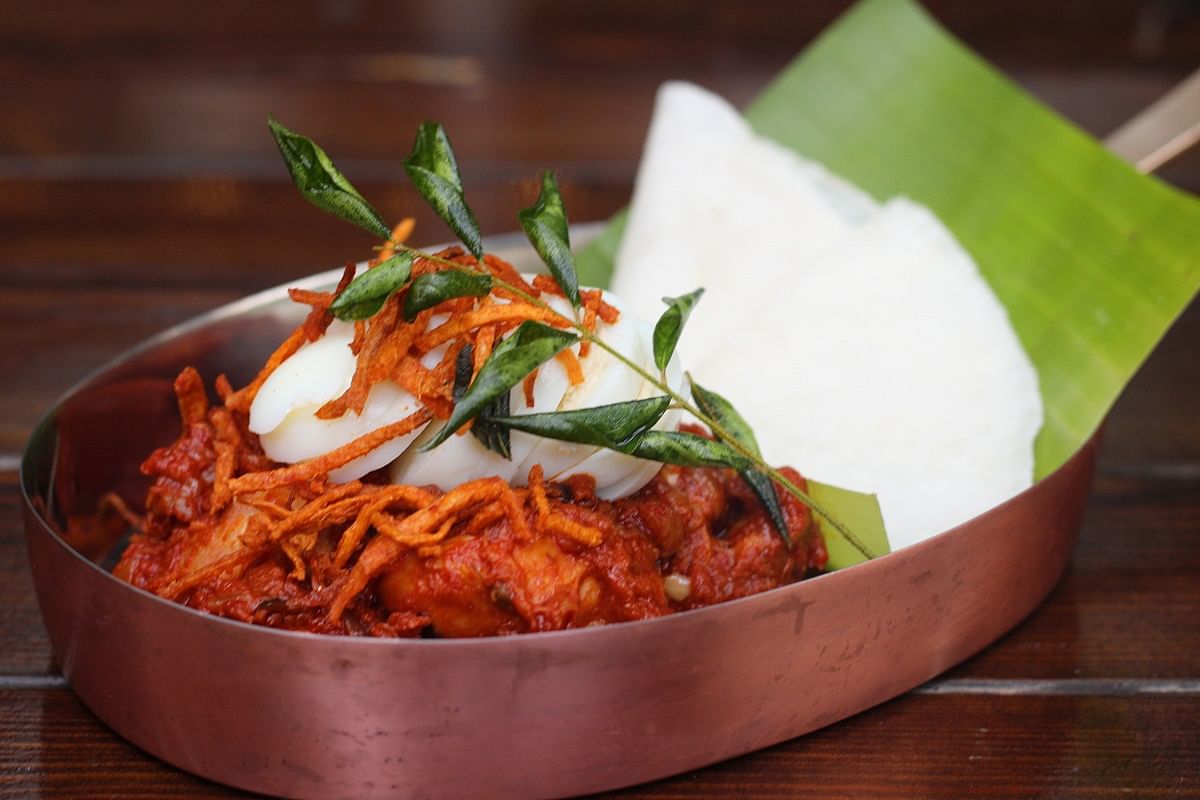I come from a family of farmers and right from my grandfather to my mother, everyone would lend a hand in the fields. I started lending a hand in domestic chores when I assisted my mother in the kitchen. My father was in the Army.
Though I initially pitched in because of the situation, cooking soon became a passion of mine.
When I joined college, my cousin recommended a hotel management course; an advice that changed my life.
However, I was completely new to the field and everything seemed alien. I didn’t know half the ingredients. I learnt that there was something called vanilla beans. I also learnt that ‘Butter Chicken’ did not mean only butter and chicken.
But I was determined to learn everything I could in the time given to me. In my three years of college, I rarely went home. I spent my time training in various kitchens, including a six-month internship at The Leela Goa.
It was protocol to work in every section during those six months but I wasn’t allowed in the kitchen during the first three months. I would start my shift at 7 am and do everything I was asked to do. From 5 pm to 12 pm, I would work in the kitchen, learning new things from the chefs there.
Long story short, I was asked to join the hotel once I completed my graduation. Since then, I have worked in multiple organisations under many chefs, including expats. It was through them that I learnt to specialise in western cooking.
Thanks to globalisation, world cuisine is a lot more accessible now. Bengaluru is an experimental market. The customers get bored very fast and they want to try new things all the time.
This has helped chefs like me to experiment and innovate with the ingredients available. And now we have access to all kinds of ingredients too.
Earlier, we would have to wait a month or two to get our hands of white truffle and asparagus. Now, you just have to head to the nearest market.
Gone are the days of molecular gastronomy; people want local food now. They want global cuisine with a touch of local ingredients.
I too am learning many things now. Hailing from Himachal Pradesh, I earlier used to think that everyone in South India had only sambhar, idly and dosa. I was clearly wrong.
So when I was introduced to the Mangalorean dish ‘Koli Ghee Roast’, I couldn’t stop thinking about it. I loved it so much that I took my wife a couple of days later and she ended up loving it too.
I’ve, of course, added my own variants to the traditional recipe to enhance its flavours. The only way to perfect the recipe is to be patient and take your time cooking it.
Make sure you don’t cook it on high heat as it could burn the chilli. Just as the name suggests, ghee should be the hero of the dish.
Sandeep Kumar, Executive chef - Renaissance Bengaluru Race Course Hotel
Ingredients
Chicken breasts or thigh (skinless), 1 cut into small pieces
Curd, 3 tbsp
Turmeric powder, 1/2 tsp
Lemon juice, 1 tsp
Curry leaves, 1 sprig
Jaggery, 1 teaspoon
Ghee, 3 tbsp
Salt to taste
Dry red chillies, 6
Whole black peppercorns, 1 tsp
Cloves, 2
Methi seeds, 1 tsp
Coriander seeds, 2 tsp
Cumin seeds, 1 tsp
Garlic, 4 cloves
Tamarind paste, 1 tbsp
Method
For Marination
- In a bowl, add curd, turmeric and lemon juice and mix it well.
- To this curd mixture, add washed chicken pieces and marinate for at least 1 hour.
For the ghee roast masala
- Heat a flat skillet and add dry red chillies, fenugreek seeds, cumin seeds, coriander seeds, cloves and peppercorns.
- Roast them on low flame until the aroma of the spices wafts through the air. Turn off the flame and allow cooling.
- Once the spices are cool, add them to a mixer jar along with the garlic and tamarind paste along with a tablespoon of water into a smooth paste.
- Keep it aside.
To cook the Koli Ghee Roast
- Heat a kadai with ghee, add curry leaves and allow it to crackle.
- Now, lower the flame, add chicken that is marinated with curd into the kadai, and cook until the chicken has become firm.
- Add the ghee roast masala into the kadai and mix until it combines. Cook the chicken in the pan until the ghee separates out and reaches the surface.
- Finally, add in the jaggery, salt to taste and mix well.
- Once the jaggery has melted, mix well and check for seasoning.
- Switch off the heat and serve hot with akki roti or neer dosa.
